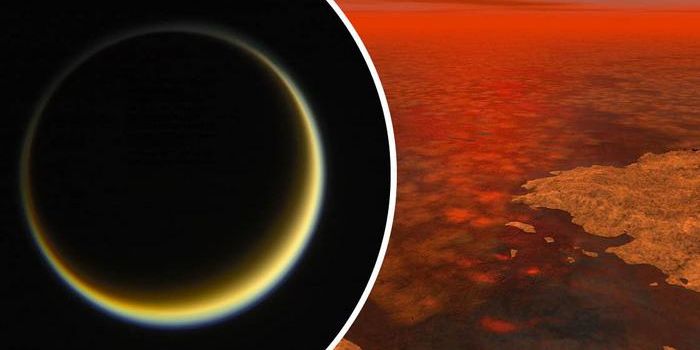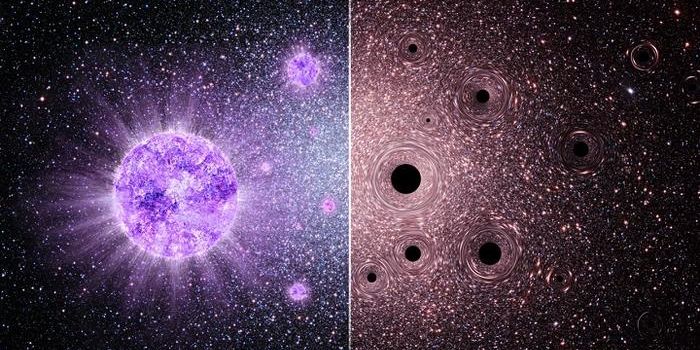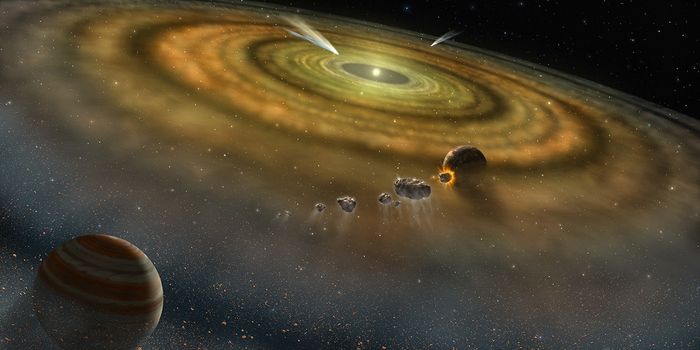Why? How? What? According to Physicists at CERN, the universe shouldn't exist
So you are sitting in front your computer and reading this article, it pretty much proves that the universe does exist. But why does anyone wish to investigate this question in the first place? And why would scientists support this idiotic idea? What evidence do they have?

Matter-Antimatter Annihilation. Credit: Quora
The standard model of physics predicts the Big Bang should have created equal amounts of matter and antimatter in the baby stage of the universe. Matter and its antimatter counterpart (for example proton and anti-proton) have the same mass as one another, but opposite electric charge, and other differences in quantum numbers. What is more important, as they come into contact with each other, a combustive annihilation happens. The explosion destroys both and leaves behind only photons.
But today everything in our world from bacteria to planets is made almost entirely of matter. Scientists suspected that something must have tipped the balance. By closely comparing matter and antimatter and trying to spot the discrepancy between the two, physicists hope that they can find a clue behind the domination of matter but not antimatter. So far they’ve performed extremely precise measurements for all sorts of properties: mass, electric charge and so on, but no difference has yet been found.
Antihydrogen-producing cusp trap. Credit: CERN
According to a latest research paper in the field, Physicists at CERN have made the most precise measurement ever of the magnetic moment of an antiproton. Magnetic moment measures how a particle reacts to magnetic force. But to their disappointment, they found it to be the same as that of the proton but with opposite sign.
“All of our observations find a complete symmetry between matter and antimatter, which is why the universe should not exist,” says Christian Smorra, a physicist at CERN’s Baryon–Antibaryon Symmetry Experiment (BASE) collaboration. “An asymmetry must exist here somewhere but we simply do not understand where the difference is.” (BASE is a multinational collaboration at the Antiproton Decelerator of CERN which is dedicated to studying the fundamental properties of antiprotons and protons.)
It is not the first time that scientists attempted to measure the magnetic nature of antimatter. Last year, scientists at CERN’s Antihydrogen Laser PHysics Apparatus (ALPHA) experiment decided to test whether hydrogen and antihydrogen have the same spectrum, in another word, if they absorb and emit light at the same wavelengths. Based on the first-ever laser-spectroscopic measurement of an antimatter atom, their results suggested hydrogen and antihydrogen shared the same spectrum.
There were two major obstacles before the BASE team can make their measurement. First, they had to come up with a method to directly measure the magnetic moment. The physicists did this by trapping individual protons in a magnetic field, and driving quantum jumps in its spin using another magnetic field.
While protons are easy to obtain and store, antiprotons are extremely difficult to deal with because they immediately annihilate once in contact with matter. Physicists at CERN used magnetic and electric fields to contain the antiprotons in devices called Penning traps and managed to hold the materials there for 405 days.
The stable storage allowed CERN researchers to run their magnetic moment measurement on the antiprotons. Their measurement of antiproton magnetic moment equals −2.7928473441 μ, which is identical in value to a proton but opposite in polarity. (μ is a constant called the nuclear magneton.)
To sum up, the difference between matter and antimatter, if there is any, does not lie in their magnetism. So physicists are back to their drawing board to figure out what characteristic set matter apart from antimatter, and make them the dominant substance in our universe (which does exist!).
Why antimatter matters. Credit: TEDx.
Source: Cosmo Magazine/Nature









